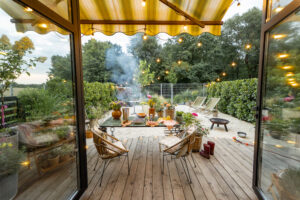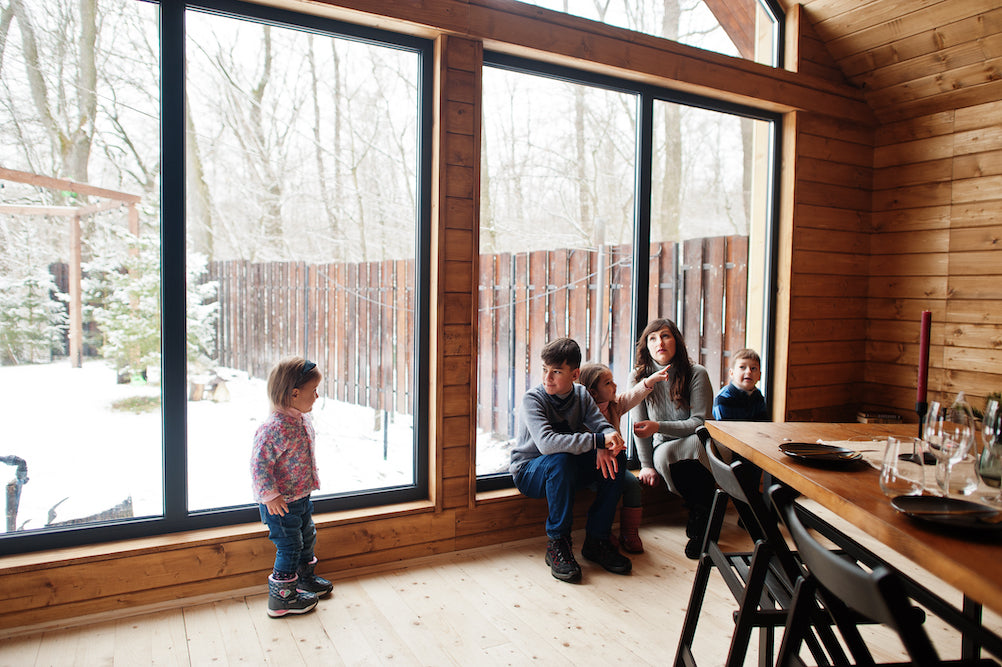As we venture further into the 21st century, sustainability has become a crucial consideration for homeowners. With climate change and environmental degradation presenting significant challenges, making eco-friendly upgrades to your home not only benefits the planet but can also enhance your quality of life and even reduce long-term costs.
In 2024, several sustainable home upgrades stand out for their effectiveness, affordability, and innovation. This guide delves into the top sustainable upgrades you can make to transform your home, ensuring you meet the highest standards of environmental responsibility.
Energy-Efficient Windows and Doors
One of the most impactful upgrades you can make is replacing old windows and doors with energy-efficient models. Modern energy-efficient windows and doors are designed to minimize heat transfer, keeping your home warmer in the winter and cooler in the summer. This reduces the need for heating and cooling, leading to significant energy savings.
Key Benefits:
- Lower Energy Bills: Energy-efficient windows and doors can reduce energy costs by up to 30%.
- Improved Comfort: By maintaining a more consistent indoor temperature, these upgrades enhance overall comfort.
- Reduced Carbon Footprint: Less energy consumption means lower greenhouse gas emissions.
Pro Tip: Look for windows and doors with the ENERGY STAR label, which indicates they meet strict energy efficiency guidelines set by the U.S. Environmental Protection Agency.
Solar Panels and Home Batteries
Harnessing solar energy is a powerful way to make your home more sustainable. Solar panels convert sunlight into electricity, significantly reducing reliance on fossil fuels. Pairing solar panels with home batteries allows you to store excess energy for use during cloudy days or power outages.
Key Benefits:
- Energy Independence: Reduce or eliminate your dependence on the grid.
- Long-Term Savings: While the initial investment can be high, solar panels typically pay for themselves within 5-10 years.
- Increased Home Value: Homes with solar panels often sell at a premium.
Pro Tip: Research local incentives and tax credits that can offset the installation costs of solar panels and home batteries.
Smart Thermostats
Smart thermostats are an easy and effective way to manage your home’s energy use. These devices learn your schedule and adjust the temperature automatically, ensuring optimal energy use without sacrificing comfort.
Key Benefits:
- Energy Savings: Smart thermostats can save up to 15% on heating and cooling costs.
- Convenience: Control your home’s temperature remotely using your smartphone.
- Enhanced Comfort: Maintain the perfect temperature in your home year-round.
Pro Tip: Choose a smart thermostat that integrates with other smart home devices for a seamless and efficient home automation experience.
Water-Saving Fixtures
Water conservation is an essential aspect of a sustainable home. Upgrading to water-saving fixtures, such as low-flow showerheads, faucets, and toilets, can significantly reduce your water consumption.
Key Benefits:
- Lower Water Bills: Save money by reducing water usage.
- Environmental Impact: Conserving water helps protect local water supplies and ecosystems.
- Enhanced Home Value: Water-saving fixtures are attractive to environmentally conscious buyers.
Pro Tip: Look for fixtures with the WaterSense label, which indicates they meet EPA criteria for water efficiency and performance.
Green Roofs and Living Walls
Green roofs and living walls are not only visually stunning but also offer numerous environmental benefits. A green roof involves covering a roof with vegetation, which helps insulate the home and reduce stormwater runoff. Living walls, or vertical gardens, provide similar benefits when installed on the exterior or interior walls.
Key Benefits:
- Improved Insulation: Reduce heating and cooling costs by enhancing your home’s insulation.
- Stormwater Management: Green roofs absorb rainwater, reducing runoff and decreasing the risk of flooding.
- Air Quality Improvement: Plants in green roofs and living walls can improve air quality by filtering pollutants.
Pro Tip: Consult with a professional to ensure proper installation and maintenance of green roofs and living walls, as they require specific care to thrive.
Energy-Efficient Appliances
Upgrading to energy-efficient appliances is one of the easiest ways to make your home more sustainable. Modern appliances use significantly less energy than older models, reducing both your energy bills and environmental impact.
Key Benefits:
- Energy Savings: Energy-efficient appliances can save up to 50% more energy than standard models.
- Rebates and Incentives: Many utility companies offer rebates for purchasing energy-efficient appliances.
- Enhanced Performance: Newer appliances often come with advanced features that improve functionality and convenience.
Pro Tip: Prioritize replacing the most energy-intensive appliances, such as refrigerators, washing machines, and water heaters, to maximize savings and impact.
Sustainable Building Materials
When renovating or building new, choosing sustainable building materials can make a significant difference. Options like reclaimed wood, bamboo, and recycled steel not only reduce environmental impact but also add unique character to your home.
Key Benefits:
- Reduced Environmental Impact: Sustainable materials often require less energy to produce and generate fewer emissions.
- Durability: Many sustainable materials are incredibly durable and long-lasting.
- Aesthetic Appeal: Unique textures and finishes can enhance the beauty of your home.
Pro Tip: Work with a contractor experienced in sustainable building practices to ensure your materials are sourced responsibly and used effectively.
Insulation Upgrades
Proper insulation is crucial for maintaining energy efficiency. Upgrading your insulation can prevent heat loss in the winter and keep your home cooler in the summer, significantly reducing your reliance on heating and cooling systems.
Key Benefits:
- Energy Savings: Effective insulation can reduce energy costs by up to 20%.
- Improved Comfort: Maintain a consistent indoor temperature year-round.
- Noise Reduction: Insulation also acts as a sound barrier, making your home quieter.
Pro Tip: Consider eco-friendly insulation options, such as cellulose or recycled denim, for an added sustainability boost.
Conclusion
Incorporating sustainable upgrades into your home is a powerful way to contribute to environmental conservation while enhancing your living space. From energy-efficient windows and solar panels to water-saving fixtures and sustainable building materials, the options for creating a greener home are abundant. By investing in these top sustainable upgrades for 2024, you not only reduce your carbon footprint but also enjoy long-term savings and improved comfort. Transform your home into an eco-friendly haven and lead the way in sustainable living.








Reader Interactions